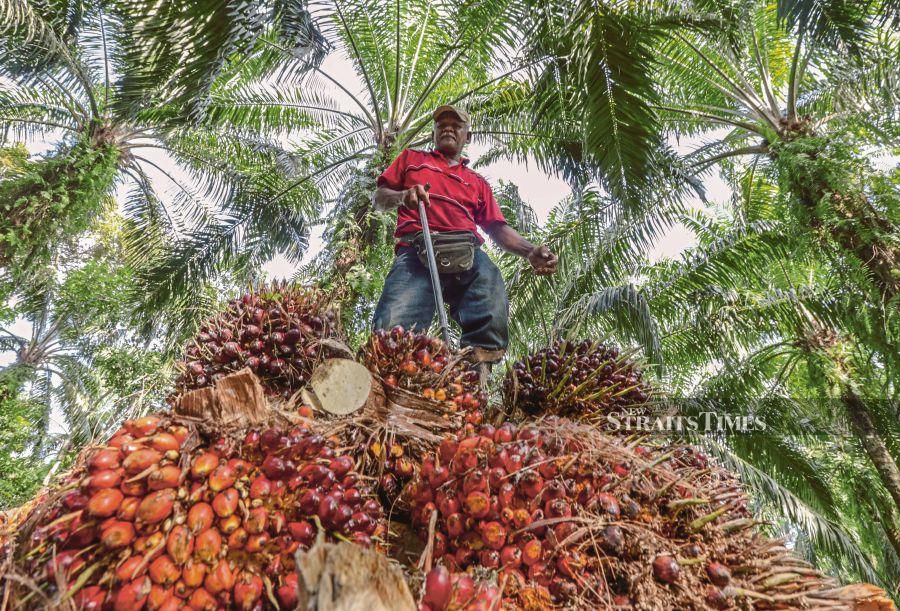
MALAYSIA and Indonesia’s commitment to strengthening cooperation through the Council of Palm Oil Producing Countries (CPOPC) to fight discriminative trade policies against palm oil is an encouraging development for the oil palm industry.
This is a strategic approach by the CPOPC, an organisation established in November 2015 by the two countries to strengthen cooperation, taking into account the global opportunities and challenges in the commodity sector.
Malaysia and Indonesia account for about 90 per cent of the world’s palm oil production and the CPOPC is definitely the platform to address palm oil issues.
The two countries recognised the significant contribution of palm oil sector in generating export revenue, raising the income level of rural smallholders and addressing poverty, as well as creating employment and new business opportunities.
The two countries also recognised a few situations, primarily those relating to sustainable practices and trade impediments. One of them is the European Union’s (EU) contention over Indonesian and Malaysian palm oil.
The EU will gradually phase out palm-based biofuel by 2030 under its Renewable Energy Directive II, as it has been classified by the bloc as resulting in excessive deforestation and can no longer be considered a renewable transport fuel.
On Dec 6 last year, the EU Council and Parliament reached a provisional deal on a proposal to minimise the risk of deforestation and forest degradation associated with products, including palm oil, that are imported into or exported from the EU.
The strategies for engagement on palm oil issue in the EU include intensifying the continuous engagement and to strengthen working relationships with the policymakers of the EU, including members of the European Parliament, the European Commission and Council of the EU to provide the latest information on the sustainable development of the Malaysian oil palm industry and the efforts on conservation of forests and biodiversity.
Constant industry engagement is absolutely vital where suppliers and purchasers must be on the same page in terms of positioning palm oil as a sustainable commodity and certification systems as meeting sustainability requirements.
The oil palm industry should continue providing technical advisory services to producers and manufacturers on the advantages of using Malaysian palm oil as an ingredient and to communicate the nutritional and health benefits of palm oil, as well as the advantages of palm oil for non-food applications.
On the other hand, the Malaysian Palm Oil Board (MPOB) continues to develop new palm-based value-added products especially for downstream sectors, such as phytonutrients and oleochemicals, through research and development.
Palm oil-producing countries should cooperate and work together through their missions in Brussels, Belgium and other platforms, apart from the CPOPC and Asean, to formulate strategies to address issues and challenges faced by the oil palm industry in EU.
The development of the regulatory and non-regulatory measures in the EU could also provide an opportunity for our oil palm industry, taking into consideration the oil palm industry is one of the most regulated agricultural sectors in the world with legislation and regulations in place to ensure that the industry adheres to domestic and international standards.
Our oil palm industry focuses on increasing productivity through good agricultural practices and better planting materials.
In addition, research and development programmes are carried out continuously to enhance productivity without having to open up new areas for oil palm cultivation.
Our oil palm industry is committed to producing palm oil in accordance to principles and criteria prescribed by the mandatory Malaysian Sustainable Palm Oil (MSPO) certification scheme from Jan 1, 2020, which has enhanced the value of Malaysian palm oil by minimising the carbon footprint of the industry.
Last year, we revised the MSPO standards to be in line with international norms, increase credibility and expand broader scopes for recognition from the global market.
Improvements on matters involving social and labour issues, good practices, high conservation values, social impact assessment and quantification of greenhouse gas emissions were also considered in the revision of the MSPO standards.
The writer is director-general of the Malaysian Palm Oil Board
Source : NewStraitsTimes

